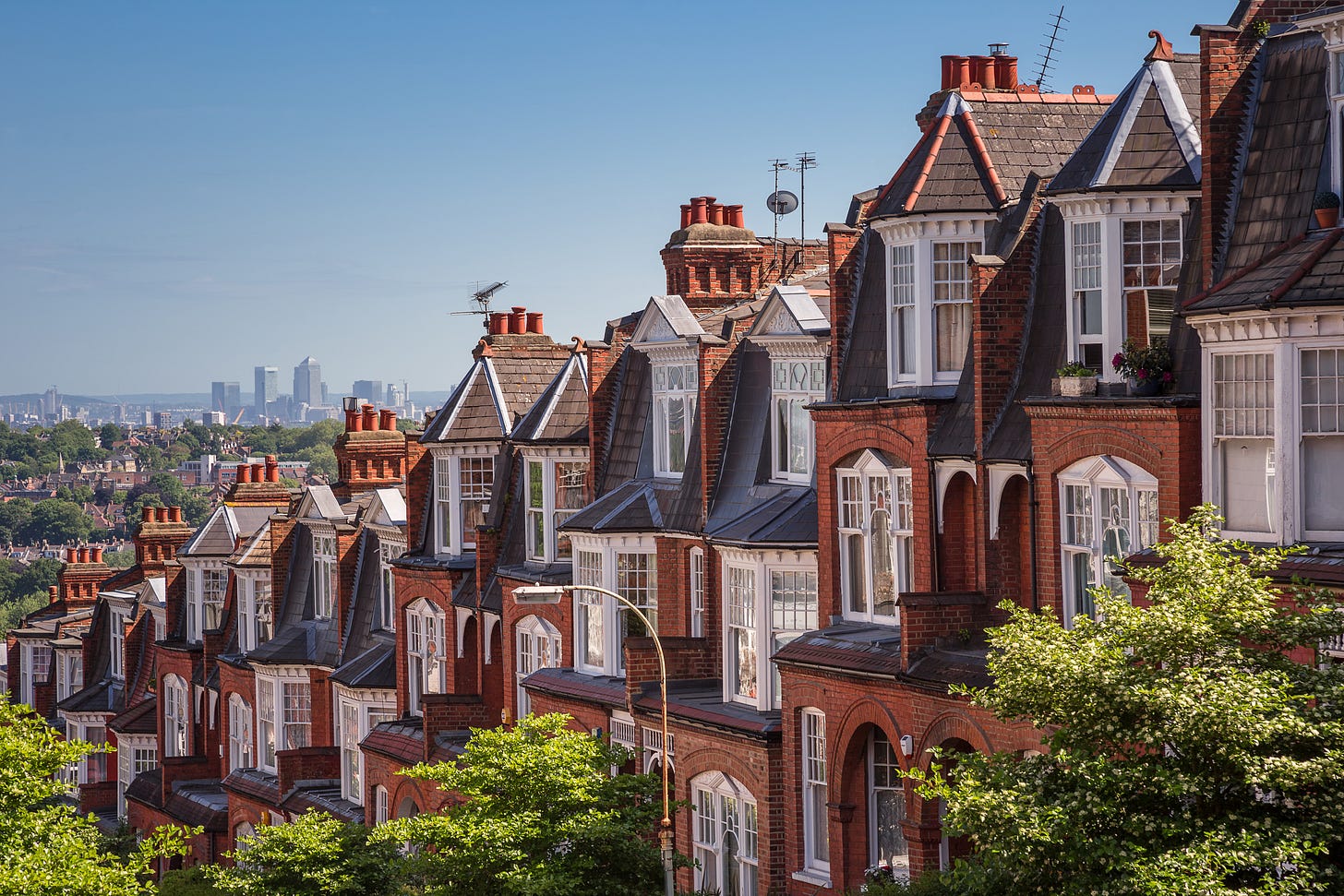UK housing trends bode ill for Britain's young
High property prices point to longer, not shorter, working lives
In many respects the UK economy has proved surprisingly resilient in the face of the big shocks of the last decade and a half – everything from the financial crisis to Brexit, the pandemic and the 2022 energy shock. Barring the short-lived contraction at the onset of the pandemic, the UK has not faced a serious recession for 15 years. House prices have risen 26% since January 2019 and today stand at their highest levels, according to the Halifax.
Even adjusting for the surge in CPI inflation in the last three years house prices have done relatively well. The peak-to-trough decline in inflation-adjusted house prices, between March 2022 and September 2023, was 12%, far less than the decline seen in the recessions of 1990-92 and 2007-09. In real terms house prices are much higher today than has been the case for most of the last 20, or, indeed, 50 years.
Elevated house prices have pervasive effects. First-time buyers (FTBs) are older, fewer in number and require more capital than in the past. According to real estate firm CBRE, the average FTB deposit has risen from 60% to 120% of average income since 2002.
Homebuyers are not only contending with high house prices. In the wake of the financial crisis, regulators toughened the rules governing mortgage lending that has constrained the supply of mortgages. The sharp rise in mortgage rates since 2022 has made it even harder to get on the housing ladder. The prevalence of fixed-rate mortgages means that many households who took out mortgages before interest rates rose from 2021 have yet to face the full effect of higher mortgage costs.
Unsurprisingly, homeownership is in decline. There are two million fewer owner-occupiers with mortgages today than 20 years ago. Those who can get into the housing market are increasingly doing so by taking out longer-term mortgages to reduce their monthly payments. 25-year mortgages were once the norm but now the proportion of borrowers taking out new mortgages with terms of 30 years or longer has risen from 12% in 2005 to 50%. New mortgages with terms of 40 years or more now account for just under 10% of new mortgage lending, up from less than 1% in 2005.
Most FTBs are taking out mortgages with longer terms, but this phenomenon is not confined to first-time buyers. UK Finance, the body that represents the UK banking and finance sector, reports that an increasing number of current mortgage holders are opting for longer mortgage terms as they trade up in the housing market.
A sustained improvement in housing affordability – perhaps because of an increase in housebuilding or a return to lower interest rates – could see homeowners switching back towards 25-year mortgages. But if things stay as they are, housing will remain expensive and the drift towards longer mortgage terms is likely to continue.
This would have significant economic and social effects. The average FTB in England today is aged 33. Many could be making mortgage payments into their mid and late sixties, ten years later than the previous generation who bought in the 1980s and 1990s.
As housing prices have risen, FTBs have grown older and require larger deposits. Many are taking mortgages with terms of 30, 35 or even 40 years, suggesting that FTBs will be paying off mortgages for several more years than their parents. Against this backdrop the increase in early retirement among 50- and 60-year-olds seen in the wake of the pandemic looks like an aberration. High property prices point to longer, not shorter, working lives.
A personal view from Ian Stewart, Deloitte's Chief Economist in the UK. To subscribe and/or view previous editions just google Deloitte Monday Briefing.




